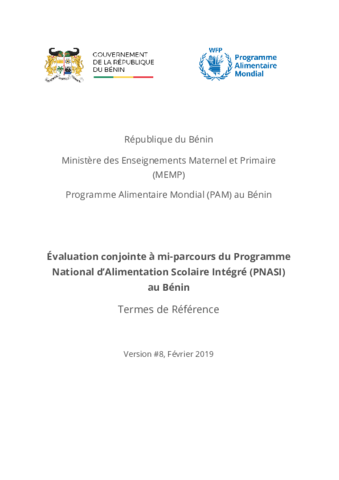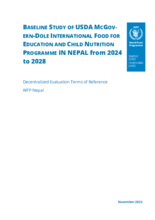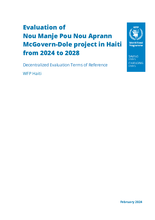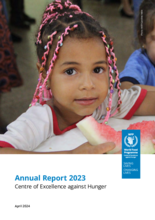
The evaluation was designed according to the following international criteria: relevance, effectiveness, efficiency and sustainability.
Overarching evaluation questions included:
- To what extent was the intervention relevant to the context of Benin and the needs of the most vulnerable groups?
- To what extent are the expected results being achieved and how effective was the intervention during the period covered by the evaluation?
- How efficient has the intervention been?
- To what extent is the intervention sustainable and what are the factors that contributed to it?
Some of the activity-specific findings include the following:
- The government willingness to implement the school canteen services at a large scale in record time prevailed. This had the following consequences: (i) a larger coverage than what initially planned; (ii) a limited performance in terms of the number of canteens days in school level C1; (iii) an imbalance in the implementation between some components; (iv) the rashness to begin did not give enough time to WFP and MEMP to define the piloting and implementation mechanism, to build a results and monitoring framework in line with WFP standards (in particular for what concerns gender) and which would be a real tool for the implementation and the monitoring of the activities.
- The investment granted to the structures in the field, aiming at ensuring the NGOs coordination and at the implementation and the monitoring, is coherent and relevant: it translates the importance that the government gives to school feeding; it enabled the strengthening of the management capacities locally. Currently, the role of the NGOs supervisors is limited to the upkeeping of the tools and the management of the food supplies. The sensitization of the local actors has been done through interventions planned by the central level. A more decentralized approached, which would give a larger scope of action to the NGOs to develop mobilization strategies, appropriate to the local challenges and opportunities, would enhance the operational structures put in place.
Key recommendations from the evaluation included:
R1: Establish an enabling institutional framework for school feeding in Benin
R2: Provide PNASI with a structured management and monitoring tool
R3: PNASI School canteen functioning (Component 1): ensure the quality of the implementation and of the monitoring
R4: Community strengthening (Component 3): mobilise NGOs to secure the involvement of authorities at local and community level in favour of schools and canteens
R5: Support the development of local purchases (Component 2)
R6: Analyse, document and promote the potential contribution of school feeding to inclusiveness



